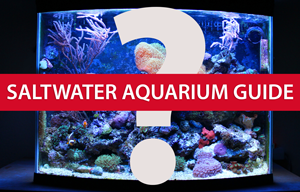Testing aquarium water should be considered a mandatory task. Water testing is not something to disregard.
Water testing is easy
Testing aquarium water is not tough. Testing kits can be bought at very reasonable prices. These testing kits make it easy to do a quick checkup on important water parameters.
There are many different aquarium water parameters that can be tested. The tests that you will want to do on your aquarium water may depend on your particular current situation as well.
The following aquarium water tests could be considered the most important tests to run on a regular basis:
Ammonia
When cycling a new tank, you will need to test for Ammonia. Ammonia levels are high during the cycling process of a new tank. Checking Ammonia levels at least once a week during this time should be sufficient for a new aquarium.
For mature tanks, Ammonia testing is also important. Ammonia levels can rise if aquarium water is not properly filtered or maintained. Checking Ammonia levels once a month should be sufficient for a mature aquarium.
pH
It is important to strive to maintain consistent pH levels. Do not let pH levels change abruptly, this may stress your aquarium inhabitants. At the same time, pH levels can change over time. Checking pH once a month should be sufficient.
pH should be in the range of 6.5 to 7.5. If you keep the levels consistent, the fish probably adjust even if the number is slightly above or below the recommended levels.
Nitrites
Testing for Nitrites is also important. Nitrates should be completely undetectable in an aquarium that has been able to fully cycle. Undetectable means 0 ppm. Nothing.
Any level of Nitrites will cause your fish to be stressed. Also, if you can keep Ammonia levels to a minimum in your aquarium the Nitrites will have no fuel and will not exist.
Nitrates
Nitrates should also be kept at 0 ppm. Nitrates are not as harmful as Nitrites or Ammonia, and can be tolerable in an aquarium up to levels of 5 to 10 ppm. This is still not a good idea, however. It is best to strive for no Nitrates.
The existence of Nitrates in an Aquarium usually is the result of not changing and filtering water appropriately. High Nitrate levels will result in excessing algae growth.
Testing these parameters, and taking the means to alleviate any found issues, will greatly help in the long term health preservation of your aquarium.

